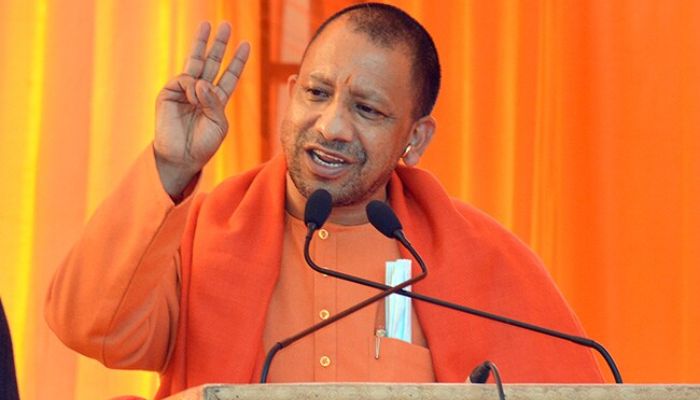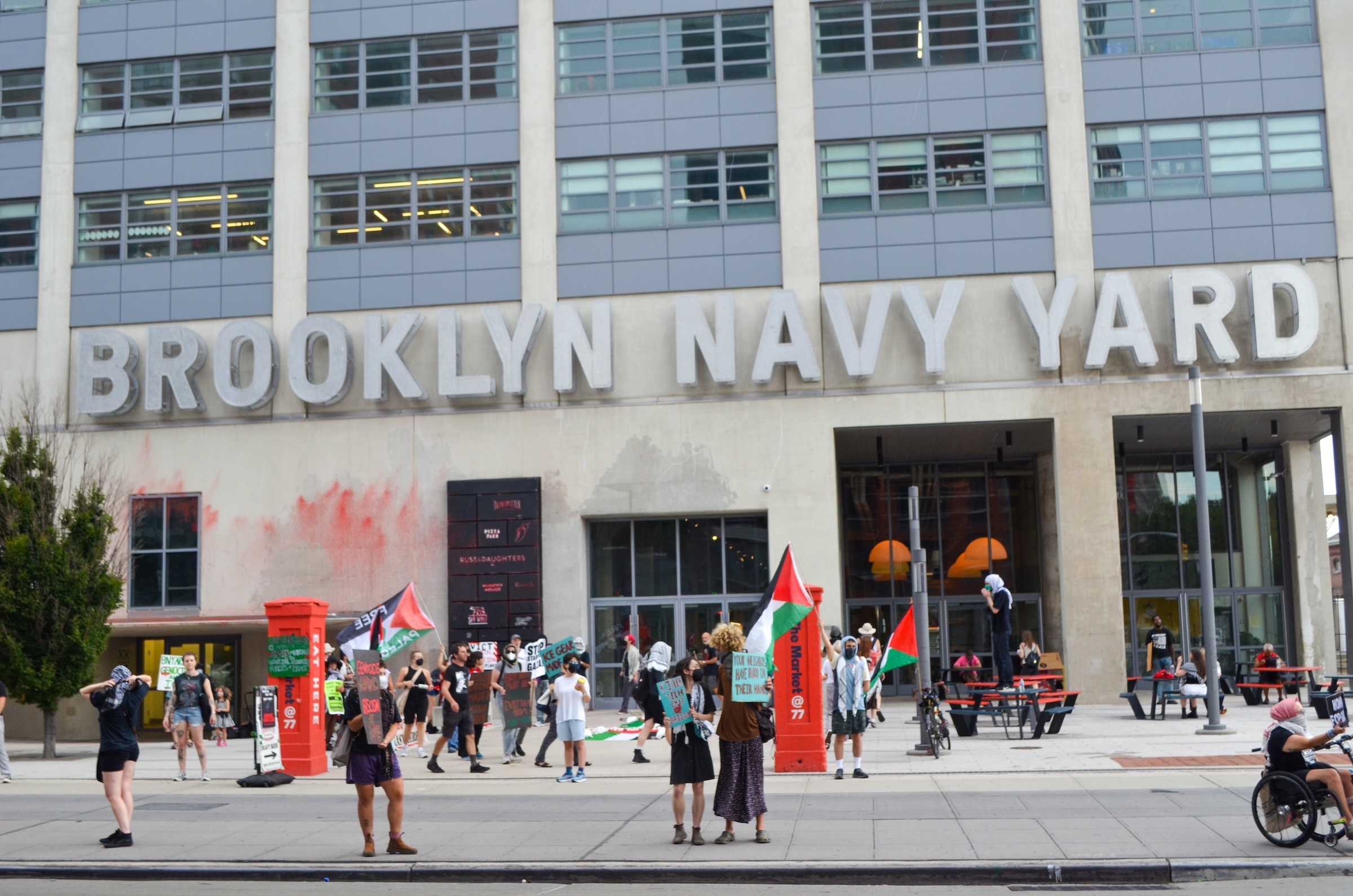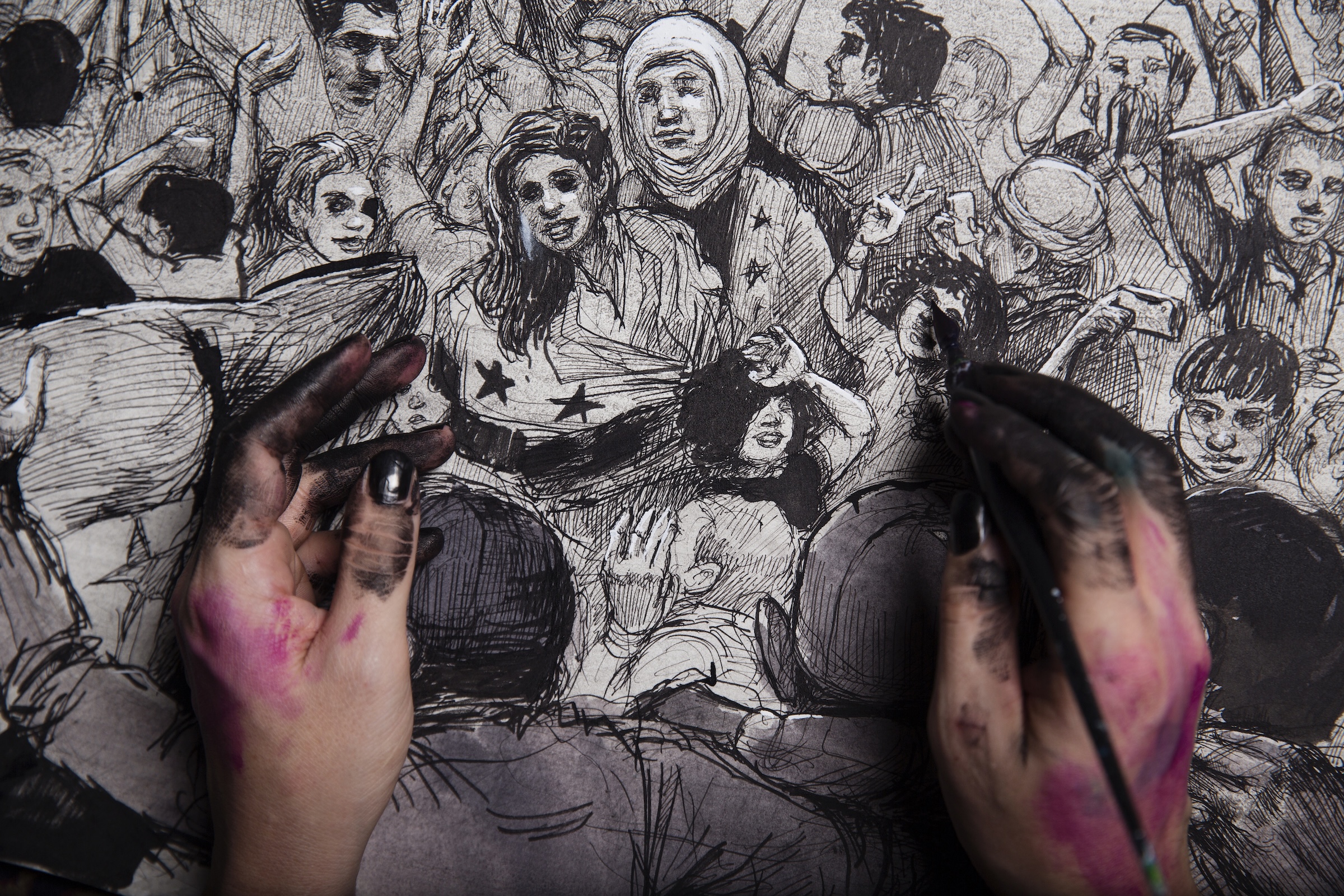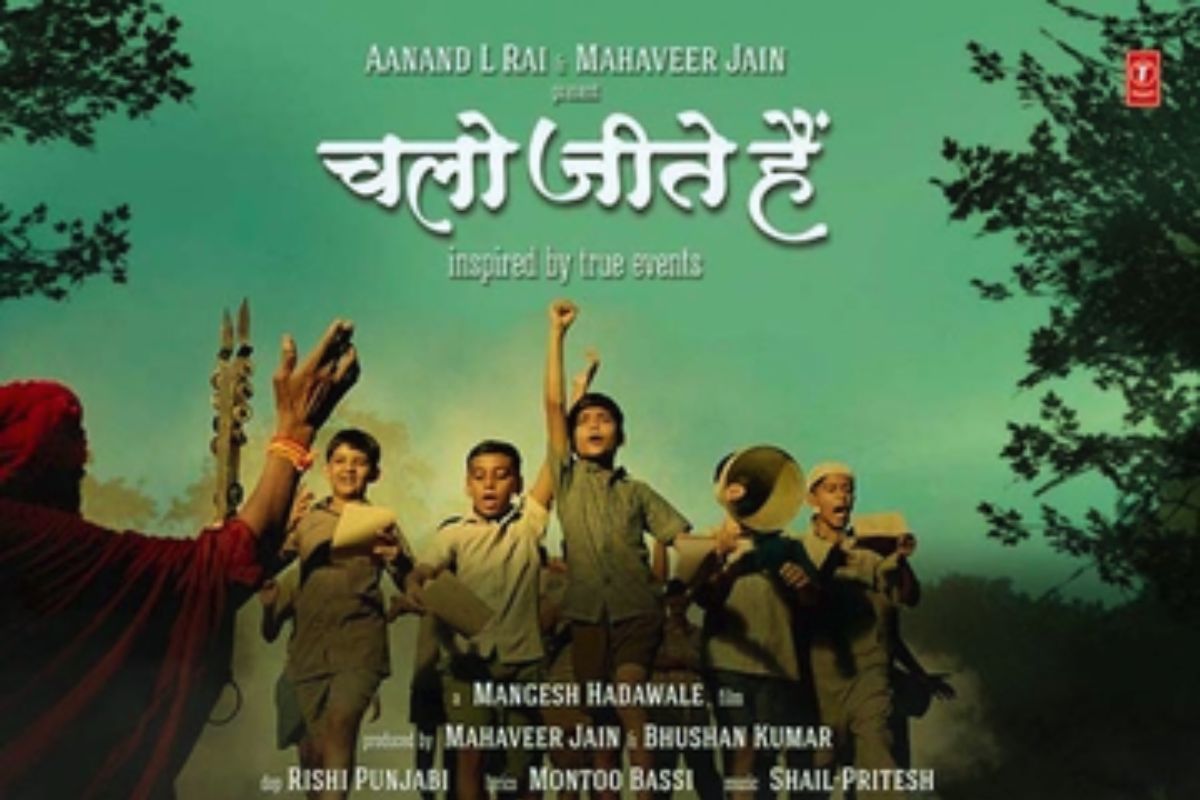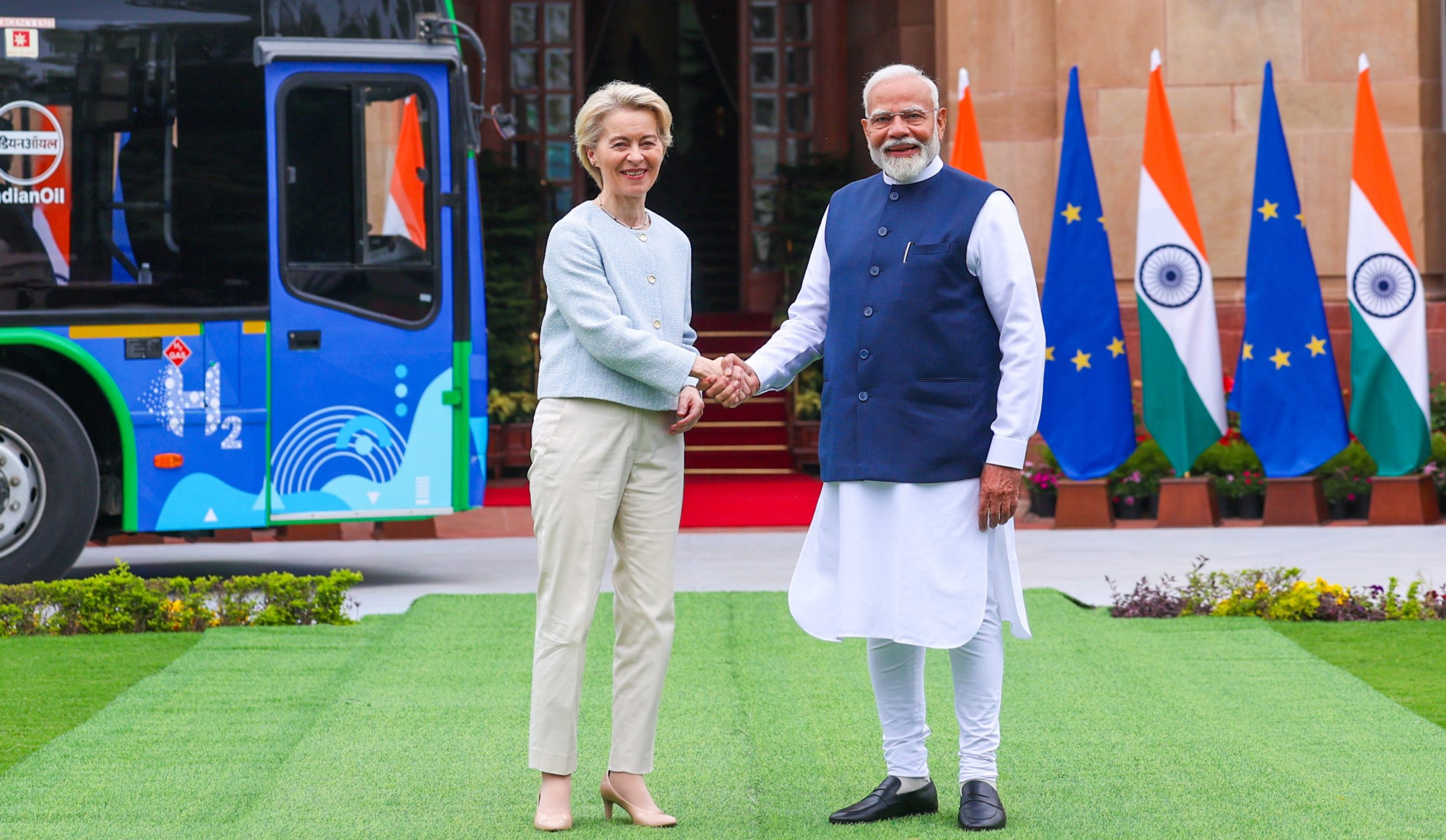‘Journalist’ Gafira Qadir peddles fake victimhood over Songs of Paradise, demonises movie for showcasing journey of female singer in conservative Muslim society
The movie ‘Songs of Paradise”, which is inspired by the life story of Kashmir’s first female playback singer, Padma Shri Raj Begum, has come under the attack of propagandists allegedly for not portraying Kashmir as they want it to be portrayed. The movie, set in the 1950s, captures the journey of a Kashmiri Muslim female singer, Zeba Akhtar, in a deeply conservative society, without zooming in on the politics of Kashmir at that time. While the movie is receiving praise for highlighting the rich poetic and musical culture of the region with a fresh perspective, without making it all about Kashmir’s conflict, the propagandists are unhappy because, for them, the movie is a lost opportunity for propaganda. A review of the movie written by ‘independent journalist’ Gafira Qadir published in the Middle East Eye described the movie as an attempt “to depoliticise and deflate Kashmiri stories through banal art”. Qadir begins her review by accusing the entire Bollywood industry of misrepresenting Kashmir’s “ravaged conflict” and romanticising the valley’s beauty. Screengrab of the article by the Middle East Eye Even though most of the movie’s cast includes actors from Kashmir, along with director Danish Renzu, who himself is Kashmiri, an enraged Qadri terms the project as “Bollywoodification of Kashmir” and sanitising the story. Apparently, Qadri not only has a problem with this particular movie but with the entire Bollywood and with the way Kashmir has been portrayed in Bollywood movies over the years. “For decades, Indian cinema has reduced Kashmir to romance, mountains, violence, or stereotypes, never to people. Kashmiris themselves are rarely shown as people with agency and history. Their existence has been shaped by a long, painful history, militarisation, and conflict. But even on the question of representing Kashmiri culture, the film fails to depict it accurately,” writes Qadri, whose disappointment does not originate from the cinematic experience the movie offers, but from the fact that the movie is not what she wanted it to be. For Qadri, the movie is “a long-time settler tactic”, which “tells a story of an individual feminist triumph at the expense of the native people”. Qadri, who seems to have difficulty in accepting that Jammu & Kashmir is an inseparable part of India, writes that the director presented a version of the story “made for the Indian eye or the Kashmiri elite” who have the “privilege to see Kashmir as merely an aesthetic”. In her statement, she makes a sly attempt to dissociate the rest of India from Jammu and Kashmir, insinuating that the rest of the Indians are and have always been ignorant of Kashmir’s problems. Qadri needs to be reminded that the rest of India has not been and cannot be ignorant of the Kashmir problem, as the Indian government has and continues to spend crores of ‘Indian’ taxpayers’ money on keeping Kashmir safe, only to see the so-called “natives” yelling slogans of “Azaadi” and attacking the Indian security forces in return. From the movie’s beginning till the end, everything from the cast and the director to the story, the dialogues, and even the pronunciation of Kashmiri language words by non-Kashmiri actors, seems to have triggered Qadri. Besides, she also seems to not have been able to come to terms with the abrogation of Article 370, which separatist mindsets confused with a constitutional validation for their separatist wet dreams, as she writes, “after the abrogation of Article 370, the state’s “integration on paper” was even marketed as freedom for Kashmiri women, while actual Kashmiri women’s voices were excluded from the conversation”. Qadir’s review of the Songs of Paradise speaks less about the movie and more about her own toxic mentality towards the rest of India and the Indian people, as she accused India of suffocating Kashmir. She cannot hide her frustration, seeing that Kashmir’s ‘victimhood’ narrative, monopolised and propagated by propagandists like her, is waning. While Qadri accuses the movie as well as Bollywood of reducing Kashmir’s stories to aesthetics, it is people like her who have reduced Kashmir’s story to a story of conflict, hatred for India, and a perpetual delusional struggle for ‘freedom’.
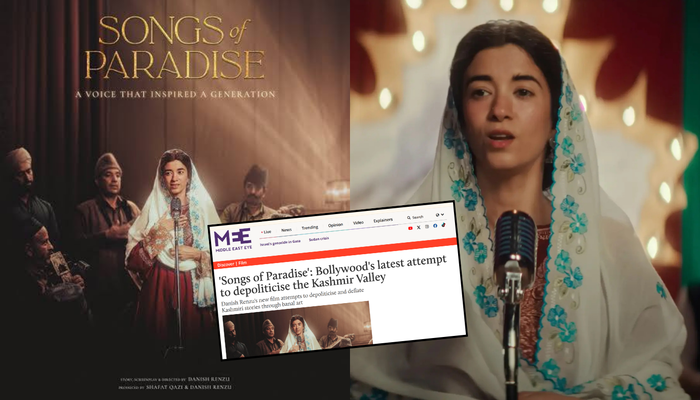


The movie ‘Songs of Paradise”, which is inspired by the life story of Kashmir’s first female playback singer, Padma Shri Raj Begum, has come under the attack of propagandists allegedly for not portraying Kashmir as they want it to be portrayed.
The movie, set in the 1950s, captures the journey of a Kashmiri Muslim female singer, Zeba Akhtar, in a deeply conservative society, without zooming in on the politics of Kashmir at that time. While the movie is receiving praise for highlighting the rich poetic and musical culture of the region with a fresh perspective, without making it all about Kashmir’s conflict, the propagandists are unhappy because, for them, the movie is a lost opportunity for propaganda.
A review of the movie written by ‘independent journalist’ Gafira Qadir published in the Middle East Eye described the movie as an attempt “to depoliticise and deflate Kashmiri stories through banal art”. Qadir begins her review by accusing the entire Bollywood industry of misrepresenting Kashmir’s “ravaged conflict” and romanticising the valley’s beauty.
Even though most of the movie’s cast includes actors from Kashmir, along with director Danish Renzu, who himself is Kashmiri, an enraged Qadri terms the project as “Bollywoodification of Kashmir” and sanitising the story.
Apparently, Qadri not only has a problem with this particular movie but with the entire Bollywood and with the way Kashmir has been portrayed in Bollywood movies over the years.
“For decades, Indian cinema has reduced Kashmir to romance, mountains, violence, or stereotypes, never to people. Kashmiris themselves are rarely shown as people with agency and history. Their existence has been shaped by a long, painful history, militarisation, and conflict.
But even on the question of representing Kashmiri culture, the film fails to depict it accurately,” writes Qadri, whose disappointment does not originate from the cinematic experience the movie offers, but from the fact that the movie is not what she wanted it to be.
For Qadri, the movie is “a long-time settler tactic”, which “tells a story of an individual feminist triumph at the expense of the native people”.
Qadri, who seems to have difficulty in accepting that Jammu & Kashmir is an inseparable part of India, writes that the director presented a version of the story “made for the Indian eye or the Kashmiri elite” who have the “privilege to see Kashmir as merely an aesthetic”.
In her statement, she makes a sly attempt to dissociate the rest of India from Jammu and Kashmir, insinuating that the rest of the Indians are and have always been ignorant of Kashmir’s problems. Qadri needs to be reminded that the rest of India has not been and cannot be ignorant of the Kashmir problem, as the Indian government has and continues to spend crores of ‘Indian’ taxpayers’ money on keeping Kashmir safe, only to see the so-called “natives” yelling slogans of “Azaadi” and attacking the Indian security forces in return.
From the movie’s beginning till the end, everything from the cast and the director to the story, the dialogues, and even the pronunciation of Kashmiri language words by non-Kashmiri actors, seems to have triggered Qadri.
Besides, she also seems to not have been able to come to terms with the abrogation of Article 370, which separatist mindsets confused with a constitutional validation for their separatist wet dreams, as she writes, “after the abrogation of Article 370, the state’s “integration on paper” was even marketed as freedom for Kashmiri women, while actual Kashmiri women’s voices were excluded from the conversation”.
Qadir’s review of the Songs of Paradise speaks less about the movie and more about her own toxic mentality towards the rest of India and the Indian people, as she accused India of suffocating Kashmir.
She cannot hide her frustration, seeing that Kashmir’s ‘victimhood’ narrative, monopolised and propagated by propagandists like her, is waning.
While Qadri accuses the movie as well as Bollywood of reducing Kashmir’s stories to aesthetics, it is people like her who have reduced Kashmir’s story to a story of conflict, hatred for India, and a perpetual delusional struggle for ‘freedom’.


